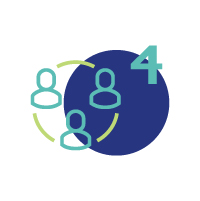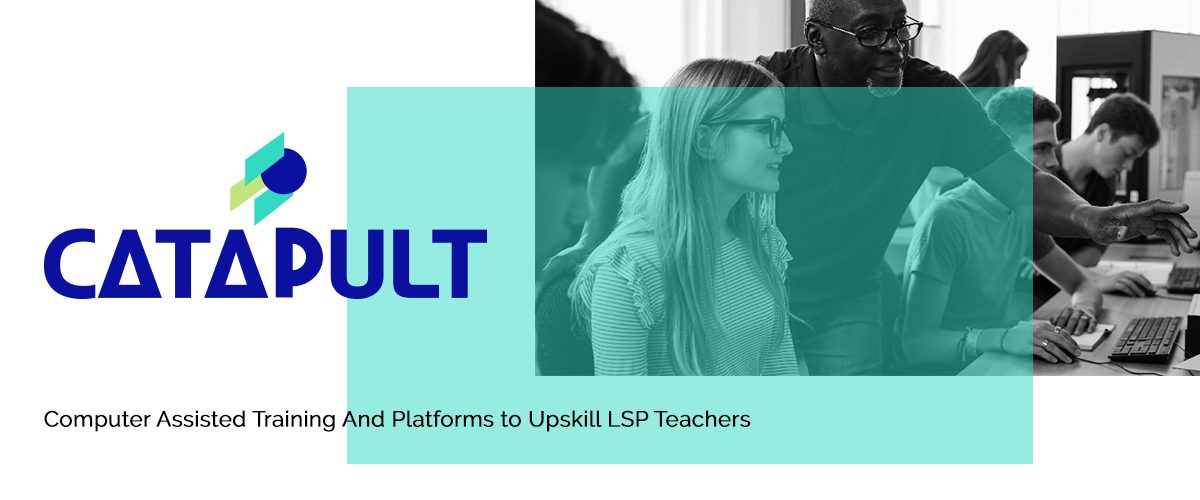The CATAPULT Project comprises 5 outputs.

Output 1 is a key output as it paves the way to the development and implementation of all following Outputs. The objective of O1 is to offer an evidence-based and detailed identification of the job market needs for LSP teachers and the associated professional skills required by the market. This analysis will shed light into the type of skills needed and will shape the offer which will be implemented in O2 and O3. The form of the situational survey has been opted by the CATAPULT team as it draws on a variety of sources that could be described as indicators of the situation, rather than ´just a mere qualitative or quantitative survey, and therefore gives a current and broad picture of the situation. This output consists in data collection from several sources, both qualitative and quantitative. The analysis of the data collected will be drafted into a public report which will be instrumental in all outputs, more importantly O2 and O3.

Output 2 – Common Competence Framework
As a first step towards drafting a common competence framework for LSP teachers, existing LSP teacher education programmes will be identified, as well as existing national teacher competence frameworks, by collecting evidence in European countries. Once the Survey is completed and the results analysed, the project team will form a view on the content and modes of delivery of LSP teacher education programmes for in-service LSP teachers. Following the end of the survey, the consortium will have data regarding the training of language teachers within training programmes across the EU. This data will be turned into a report presenting a birds-eye view of what is happening in this area in various EU member states. The report will be written primarily for an academic audience in order to share best practice and help consortium and non-consortium universities better calibrate their programmes. A meta-study of previously published research papers on LSP teaching will then be carried out with a view to identifying the specific skills necessary for effective LSP teaching. The information provided by this meta-study, along with that of the survey, will serve as the basis for the designing of the Common Competence Framework. This framework will provide an example of convergence in teacher education programmes, a key objective of European cooperation in this field.

This Intellectual Output involves the creation of a Massive Online Open Course (MOOC) to upskill general language teachers who want to specialise in LSP pedagogies, as well as LSP teachers interested in updating and expanding their pedagogical repertoire and integrate the use of technology in their practices. The MOOC thereby is a key enabler to promote, disseminate and scale the project beyond the immediate user group. The MOOC will take approximately 12 weeks to complete, depending on the mode of engagement chosen. It will be user tested in the development-phase and will be supported by a training manual. The modules will be based on the principles of MOOC design articulated by (Drake, O’Hara and Seeman, 2015) which include being: meaningful, engaging, measurable, accessible, and scalable. The MOOC will be designed based on the design criteria for blended MOOC design (Yousef, Chatti, Schroeder & Wosnitza, 2015). They described 44 design criteria, bundled into 8 clusters: blended learning, flexibility, high-quality content, instructional design and learning methodologies, lifelong learning, network learning, openness and student-centered learning.

Output 4 – Community of Practice Platform
This output focuses on the visibility and accessibility of the enhanced and internationalised offer of workplace-related language training the project is aiming for by both supporting those in search of adequate language training and facilitating practising and newly certified LSP teachers to offer and market their services internationally. To realise the project’s objective to intensify the use of LSP teaching services by the opportunities offered to providers to extend their reach and to deliver more flexible and personalised online & blended options, a multilingual Community of Practice (CoP) Platform will be developed with, as key component, a tool that will function as a matchmaker between offer and demand. Other currently planned components are Forums for dedicated topics and users (teachers, learners and more) and a collection of relevant resources. To ensure sustainability specifically for the result of this output, the production of a plan for a dedicated exploitation organisation is included.

In line with the general policy of quality management in the project, the consortium will engage in establishing a robust mechanism to ensure consistent quality of product in both of the key deliverables – the common competence framework and the MOOC modules. This will entail producing QA frameworks that are applicable as working documents for the design teams, collating data and producing QA reports at key stages in the project. The consortium will also join with the project partners to issue certificates to successful participants on the courses.
